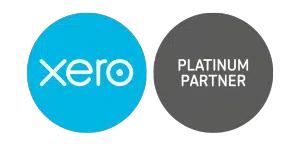The iKeep Accounting Policies have been developed to ensure a consistent base line application of bookkeeping methods across all of our client base. Australian Tax Law is very complex, and in many instances allows for options in how expenses are treated, eg there are 3 different ways that you can claim Motor Vehicle Expenses, there are several ways that you can treat Entertainment Expenses under Fringe Benefits Tax legislation.
By utilising Xero, a cloud-based accounting platform both our client and their tax adviser will have access to their business financial records every day of the year. This means that you do not necessarily have to wait until the end of the financial year for them to overlay their advice and interpretation of tax law to your specific financial situation. You remain in control of your tax strategy, and or role is to ensure a consistent and conservative approach on a monthly basis.
The purpose of the iKeep Accounting Policy is to explain the rationale behind how our bookkeepers have been instructed process transactions that could be left open to interpretation.
Cash v Accruals
The management accounts that we send you at the end of each month will be on an Accruals Basis. This means that transactions are reported on with the date that’s on the invoice, not the date that the invoice is paid. If you would like a Cash Basis report, we can show you how to access this within the reporting section of your Xero file.
Depreciation & Capital Assets
Expenditure greater than $2,000 for a single asset, with a useful life to your business of greater than 12 months will be coded to the Balance Sheet in a Fixed Asset account with GST based on the supplier invoice.
iKeep Bookkeeping will not process depreciation on the asset. The depreciation on the asset will be performed by your tax accountant when completing your business tax return. The reason for this is because your accountant will know what is best for you and whether opt for the instant write-off where applicable, or to depreciate over a number of years.
Director Drawings
As the owner of the business, there may be instances where the business transfers funds to you for more than one reason. For example, the business may be repaying a loan to the Director for funds that the Director paid on behalf of the business, or the business might pay the Director a wage for working in the business.
Largely, our team will rely upon input from the Director as to how any transfer of funds should be allocated. Noting that loan repayment is a balance sheet item, so it does not affect the reported profit, whereas a wage or fee is an expense that would reduce the monthly profit.
By default, if the Director has loaned funds to the business by way of transferring funds in, or paying expenses on behalf of the business, then unless we are told otherwise, funds transferred to the Director will be treated as loan repayments.
Entertainment
Coffees at the local café are technically defined by the ATO as “Entertainment” expenses and therefore it is not possible to claim GST on these expenses. If your accountant chooses to interpret this differently, then it is a simple task to do a bulk adjustment at the end of the financial year to re-allocate this.
The decision made by iKeep Bookkeeping has been to take a conservative approach, so there is no chance that business owners are likely to receive a surprise tax bill at the end of a year.
Default Expense Account: Staff Amenities
Default GST Code: No GST
GST
It is required by law that all businesses that turnover more than $75,000 per annum are registered for GST. Therefore managing GST obligations falls as a standard part of all of our bookkeeping engagements.
Even if you are registered for GST, there are some business expenses that do not have GST in the price. These commonly include:
- ASIC fees
- Entertainment expenses (non-deductible)
- Finance costs, eg. Bank Fees and Interest
- Fines (generally non-deductible)
- Trainers / Contractors (possibly)
Income Tax
The annual income tax for your business will be calculated and lodged by your tax advisor (not iKeep). We expect that they will post the necessary journal entry to account for this when your tax return is prepared.
Prepayments
We do not prepare schedules for prepayments. Expenses like insurance are recorded in full as an expense to give the business owner the maximum tax and GST benefit available under and cash and accrual based lodgement.
Sales
Issuing sales invoices is generally not included within the scope of our bookkeeping services. Depending on the type of business, it may be appropriate to record sales on a cash basis, or match payments received in the bank to invoices that have been raised. This will be discussed and agreed upon during our on-boarding session.




